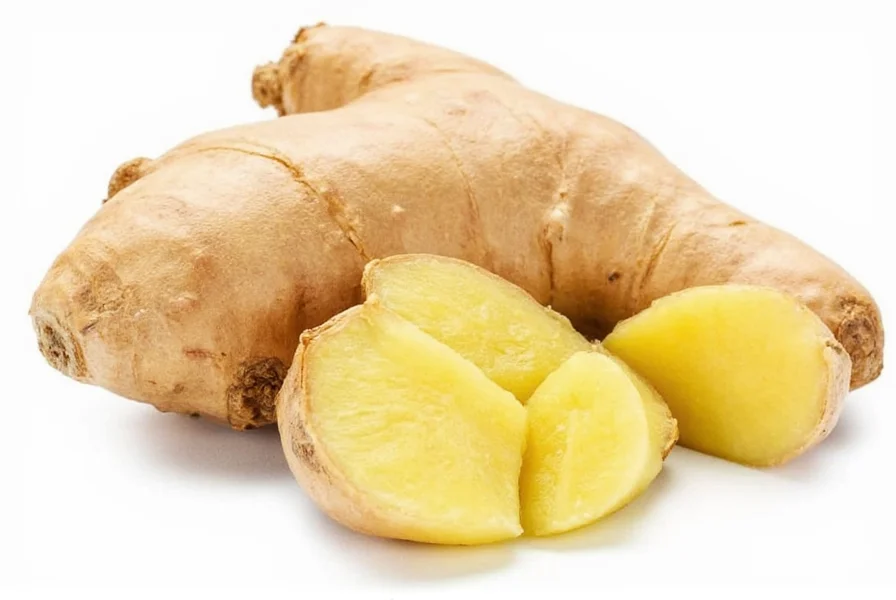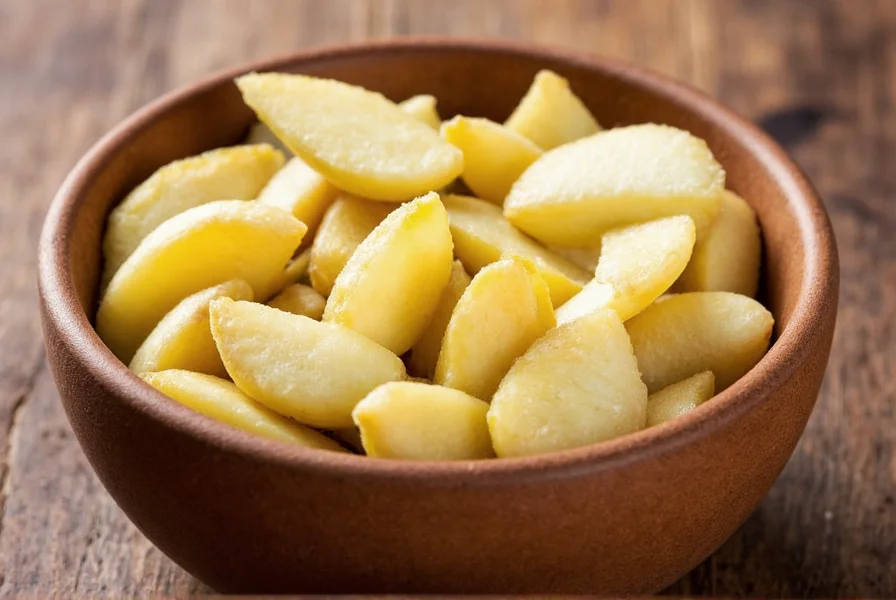When you choose organic ginger, you're selecting a product grown through sustainable agricultural methods that prioritize environmental health and consumer safety. Unlike conventional ginger, which may be treated with synthetic chemicals during cultivation and post-harvest processing, organic ginger must meet strict certification requirements that prohibit these substances throughout its production cycle.
What Defines Organic Ginger Certification
Organic ginger earns its label through rigorous certification processes that verify adherence to specific farming standards. In the United States, the USDA Organic seal indicates compliance with the National Organic Program, requiring:
- At least 95% of ingredients must be organically produced
- No synthetic pesticides or herbicides for three years prior to harvest
- No genetically modified organisms at any stage
- No sewage sludge-based fertilizers
- Soil conservation and biodiversity maintenance practices
International standards vary slightly but maintain similar core principles. The European Union's organic certification, for example, emphasizes crop rotation requirements and natural pest management techniques. When shopping for authentic organic ginger, look for certification logos from recognized bodies rather than relying solely on packaging claims.
| Characteristic | Organic Ginger | Conventional Ginger |
|---|---|---|
| Pesticide Residues | Negligible to none | Multiple detectable compounds |
| Gingerol Content | 15-20% higher on average | Baseline levels |
| Farming Practices | Soil-enriching, biodiversity-focused | May deplete soil nutrients |
| Post-Harvest Treatment | Natural methods only | May include synthetic waxes or sprouts inhibitors |
Health Benefits Supported by Research
Multiple studies indicate that organic ginger offers enhanced health benefits compared to conventionally grown varieties, primarily due to higher concentrations of bioactive compounds. The absence of synthetic pesticides appears to stimulate the plant's natural defense mechanisms, increasing production of beneficial phytochemicals like gingerol and shogaol.
Research published in the Journal of Agricultural and Food Chemistry found organically grown ginger contained 18% more total gingerols than conventionally grown counterparts. These compounds provide the characteristic pungency and deliver most of ginger's celebrated health properties, including:
- Natural nausea relief, particularly for morning sickness and motion sickness
- Anti-inflammatory effects that may reduce muscle pain and soreness
- Digestive support through increased gastric motility
- Antioxidant protection against cellular damage
- Potential cardiovascular benefits through blood pressure regulation

Environmental Impact of Organic Ginger Farming
Beyond personal health considerations, choosing organic ginger supports sustainable agricultural practices with measurable environmental benefits. Conventional ginger farming often relies on monoculture techniques that deplete soil nutrients and require increasing chemical inputs over time.
Organic ginger farms typically implement:
- Companion planting with nitrogen-fixing crops to maintain soil fertility
- Integrated pest management using natural predators instead of chemicals
- Water conservation techniques like mulching and drip irrigation
- Soil enrichment through composting and cover cropping
A 2023 study in Sustainable Agriculture Research demonstrated that organic ginger farms maintained 37% higher soil microbial diversity compared to conventional operations, contributing to long-term agricultural sustainability. This biodiversity extends to surrounding ecosystems, with organic farms supporting 50% more pollinator species according to field observations.
Selecting and Storing Organic Ginger Properly
When purchasing organic ginger, look for firm roots with smooth skin and minimal wrinkles. The best organic ginger feels heavy for its size and emits a strong, spicy aroma when scratched. Avoid pieces with soft spots, mold, or visible sprouting, which indicate age and reduced potency.
Proper storage significantly extends organic ginger's shelf life:
- Refrigeration: Store unpeeled in a paper bag in the vegetable drawer (up to 3 weeks)
- Freezing: Peel and freeze in an airtight container (up to 6 months)
- Pickling: Preserves flavor while adding probiotic benefits
- Drying: Creates shelf-stable ginger powder for long-term storage

Practical Applications in Daily Life
Organic ginger's versatility extends beyond culinary uses. For digestive support, try steeping one tablespoon of freshly grated organic ginger in hot water for 10 minutes to create a potent digestive tea. This simple preparation maximizes the extraction of gingerols while preserving their therapeutic properties.
Chefs specializing in organic cuisine recommend these techniques to maximize flavor and nutritional benefits:
- Add grated organic ginger during the last 5 minutes of cooking to preserve volatile compounds
- Pair with healthy fats like coconut oil to increase absorption of fat-soluble compounds
- Combine with citrus for enhanced antioxidant effects
- Use in fermented preparations like ginger bug for probiotic benefits
Addressing Common Misconceptions
Several myths persist about organic ginger that deserve clarification. First, organic ginger doesn't inherently contain more nutrients than conventional ginger in all categories—research shows specific bioactive compounds increase while basic vitamins remain similar. Second, the higher price reflects true production costs rather than mere marketing, as organic farming typically yields 20-30% less per acre while requiring more labor-intensive practices.
Most importantly, organic certification doesn't guarantee superior taste, though many consumers report preferring organic ginger's more complex flavor profile. This preference likely stems from slower growth rates and natural soil conditions that develop more nuanced flavors compared to conventionally grown varieties.
Frequently Asked Questions
Is organic ginger worth the higher price?
For most consumers, organic ginger provides value through reduced chemical exposure and potentially higher concentrations of beneficial compounds. While costing 20-40% more, the price difference represents approximately $0.50-$1.00 more per pound. Those using ginger medicinally or in large quantities may find the investment worthwhile for both health and environmental reasons.
How can I verify if ginger is truly organic?
Look for official certification seals from recognized organizations like USDA Organic, EU Organic, or Canada Organic. These require annual inspections and documentation of farming practices. Avoid products with vague claims like "natural" or "pesticide-free" without proper certification, as these lack regulatory oversight. When in doubt, contact the producer directly for verification of their certification status.
Does organic ginger have stronger medicinal properties?
Research suggests organic ginger contains higher concentrations of active compounds like gingerol due to the plant's natural defense mechanisms in pesticide-free environments. A 2022 meta-analysis found organically grown ginger averaged 15-20% higher gingerol content, potentially enhancing its effectiveness for nausea relief and inflammation reduction. However, individual responses vary, and proper preparation methods significantly impact bioavailability.
Can I grow organic ginger at home?
Yes, growing organic ginger at home is straightforward in warm climates or indoors. Start with certified organic ginger root from a reputable source, plant in well-draining soil with partial shade, and water regularly without saturation. After 8-10 months, you'll harvest chemical-free ginger. Home cultivation eliminates transportation emissions and ensures complete control over growing conditions, though yields will be smaller than commercial operations.











 浙公网安备
33010002000092号
浙公网安备
33010002000092号 浙B2-20120091-4
浙B2-20120091-4